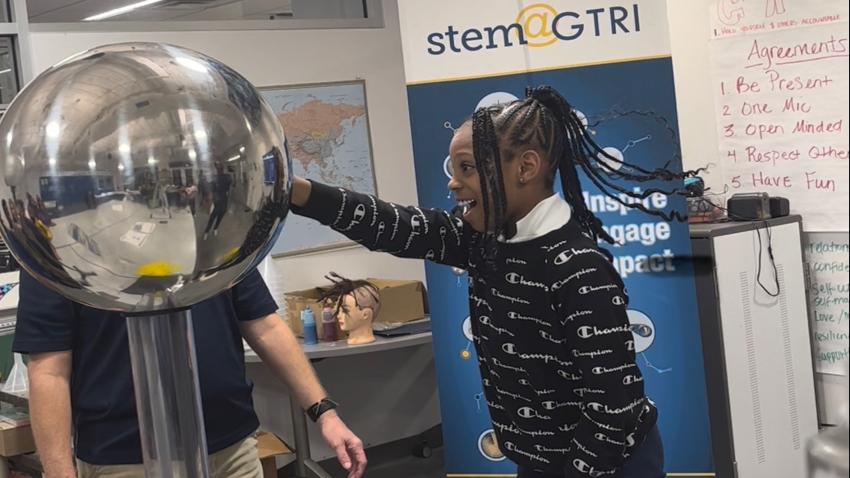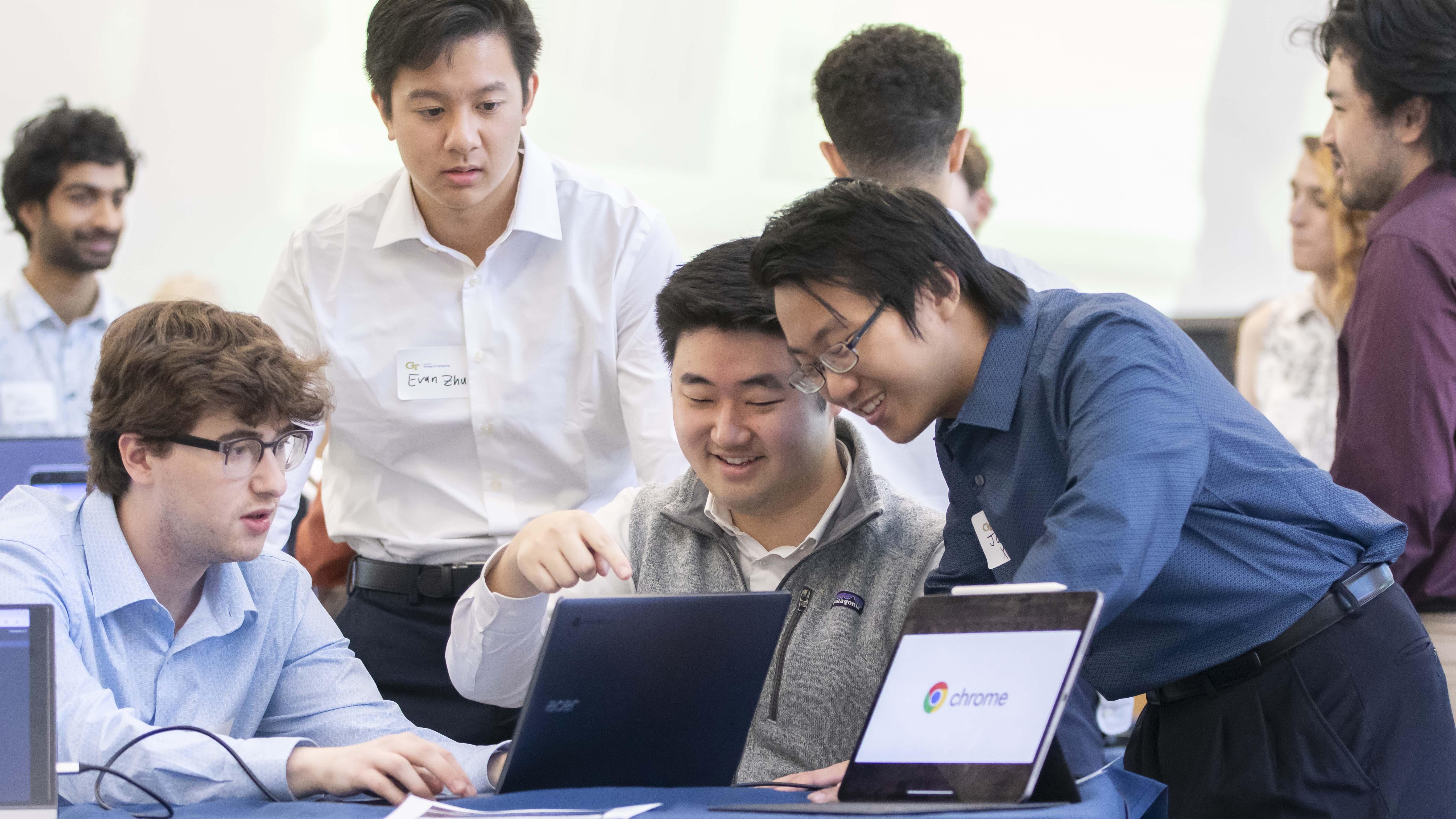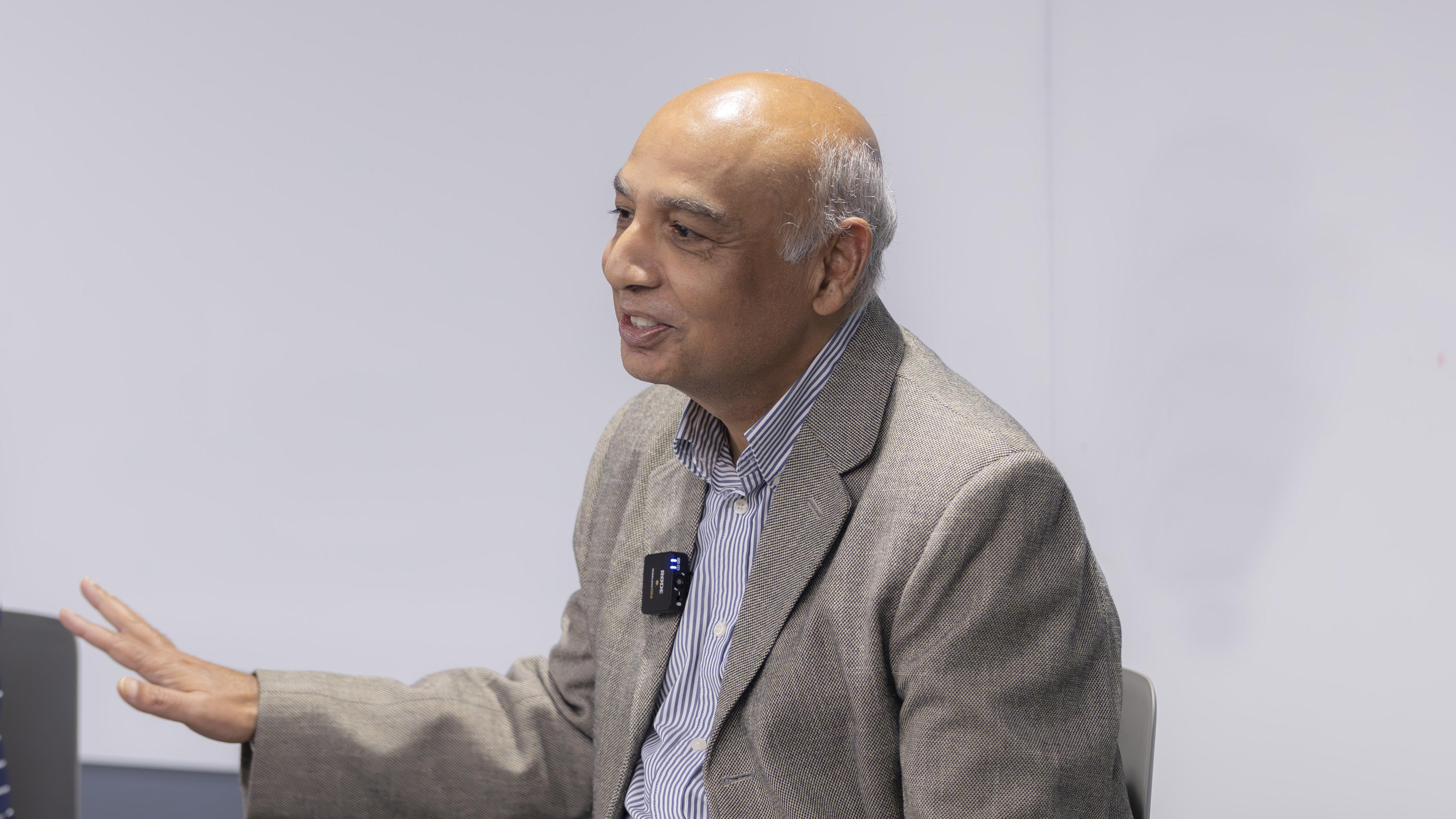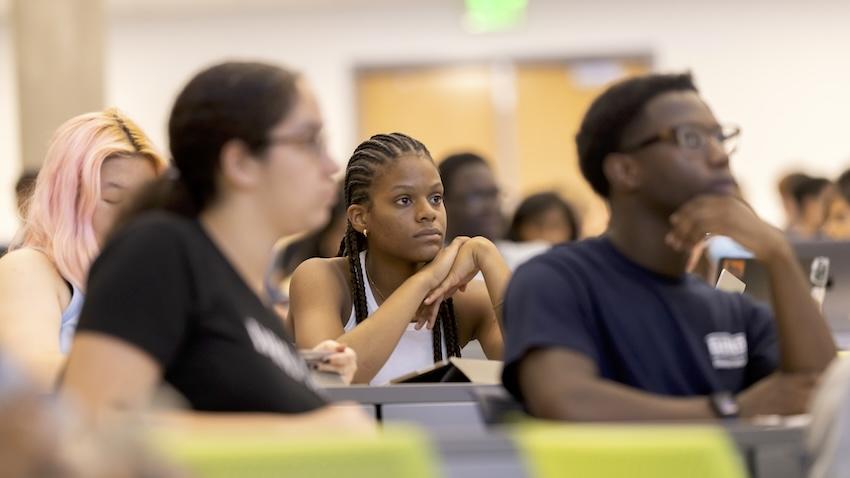
Broad ‘Day of Code’ Participation Helps to Bridge Gaps in CS Education
As part of the recent Georgia Day of Code event in December, the Constellations Center for Equity in Computing at Georgia Tech took part in helping to build computer science (CS) education opportunities for Black and other minority students.
The Harland Boys and Girls Club hosted the celebration, which offered programming for educators and students. The organization is in west Atlanta and serves students from marginalized backgrounds.
The event featured conversations about including all communities in computer science, providing resources for teachers and school districts, and a proclamation from the Governor’s Office commemorating Computer Science Education week in Georgia.
Georgia Tech’s Bryan Cox, the Kapor senior research fellow in the Constellations Center, led a hands-on CS session using a game-based learning platform, Kahoot!. This approach enabled participants to learn about the broad possibilities of digital creation and building CS skills.
The Georgia Tech Research Institute (GTRI) and the Center or Education Integrating Math and Computer Science (CEISMC) offered presentations and workshops for participants. GTRI and CEISMC were among more than a dozen organizations that participated in the Georgia Day of Code.
“We wanted to bridge some gaps in our community,” said John Strong, executive director of the Atlanta Boys and Girls Club. “A lot of our kids don’t have exposure to coding and technology. It is important that we be more intentional in helping our kids get to where they need to get to.”
The event brought together some of the organizations that are forming a new CS equity ecosystem in Atlanta. The long-term initiative is steered by the Constellations Center and the Kapor Center, a California-based organization focused on advancing an inclusive technology sector.
“The idea is to pull together policy makers, equity champions, educators, and edtech creators in groups to create CS equity hubs, which will then connect and become a CS ecosystem,” said Cox.
We are thrilled to announce Vivek Sarkar as the new Dean of the College of Computing at Georgia Tech! With a distinguished career spanning academia and industry, Sarkar's leadership promises to elevate our community to new heights. https://t.co/2mX5D46cJz pic.twitter.com/LxpLTCXWZV
— Georgia Tech Computing (@gtcomputing) April 12, 2024
@GeorgiaTech's dedication to excellence in computer science (CS) has been recognized once again, with the latest U.S. News and World Report rankings unveiling the institution at 7th place overall for graduate CS studies.https://t.co/qavNUSTb7n pic.twitter.com/BcGyGBQld8
— Georgia Tech Computing (@gtcomputing) April 10, 2024


